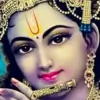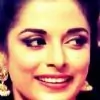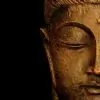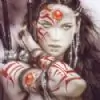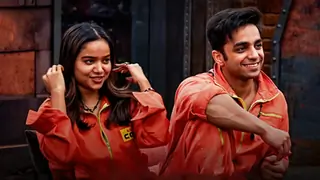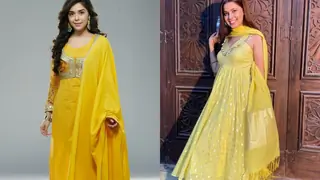Interesting blog on Abhimanyu and Ghatotkach:
What I wish to discuss, in fact, is their respective prodigal sons - Ghatotkachand Abhimanyu - and the great similarity they share in life as well as death.
I mean, look at the two. Both are born to great fathers - Ghatotkach to Bhima, son of Vayu, and Abhimanyu to Arjuna, son of Indra. With that lineage, both are grandsons of Adityas (i.e. sons of Diti Aditi and Kashyap, son of Marichi, one of the Saptarshis). -- Typo on Aditi - identified by a reader. Thank you!
Although, both are sons born to Pandavas - Bhima and Arjuna - they are from their wives other than Draupadi. Ghatotkacha is born to Hidimba, the princess of Hidimbavana, while Abhimanyu is born to Subhadra, sister of Krishna and therefore princess of Dwaraka. Ghatotkach is the only son of Hidimba, so is Abhimanyu of Subhadra.
Both are born when their fathers were in exile / hiding.
The marriage of their respective parents is preceeded by some unpleasant event - like killing of Hidimb Rakshasa in case of Ghatotkach and Subhadra-harana (abduction - carrying away if you please - of Subhadra by Arjuna from Dwaraka) in case of Abhimanyu. Both these events have a potential of turning really ugly for the Pandavas - like sister Hidimba could have got furious and killed all the brothers as a revenge, and the Yadavas could have waged a war against Pandavas at Indraprastha, where Arjuna took Subhadra. However, both the events turn out to be good for the Pandavas - and end up in matrimony.
Both the children grow up away from their fathers, but near their mothers - Ghatotkach in Hidimbavana and Abhimanyu in Dwaraka. Both are taught warfare, but that must be true for all Kshatriya kids.
Both know Shastra (hand-weapons) as well as Astra (missiles and special weaponary) vidya. Moreover, Ghatotkach is known for his Maya vidya (illusions) - being a half-Rakshasa by birth. In fact, in Tamilnadu, there is a folklore about how Abhimanyu is also an incarnate demon from Ramayana age. That makes both of them half-Rakshasas.
Both are known for their prowess in their father's weapon more than their famous fathers -Ghatotkach was superior wielder of mace than Bhima and Abhimanyu was greater than Arjuna in archery.
Both fight the Great War on the side of their fathers - the Pandavas - and are legendary for their bravery and the havoc they created for the enemy side the Kauravas. Ghatotkach fights shoulder to shoulder with Dhrishtadyunma, Pandava's commander in chief, and is known to be one of the fiercest warriors on this side. Abhimanyu is so proficient in warfare than Kauravas think that there are not one, but two Arjunas - the first being the real Arjuna and the second being his great son who resembles his father in prowess and valor.
Both kill thousands and thousands of enemies, and overpower great warriors.
Both die tragic deaths in the Great War.
Both die on the battlefield within a span of a day - Abhimanyu first and then Ghatotkach. This is during the 13th and 14th day of the war.
Indeed, these two death are crucial, landmark, and cornerstones in the war, and ensure the victory of Pandavas.
Both are killed by means beyond their regular fighting abilities - Ghatotkach by a divine missile and Abhimanyu by the overpowering attack of six people together against one.
The death of Abhimanyu is much known and celebrated --- the way he takes charge of breaking on his own the Chakravyuha created by Drona when Arjuna is gone away to fight with the Samsaptaka army, how he breaks into the Vyuha, how the other Pandavas are stopped by the barely-known Jayadratha (or Saindhava) by a quirk boon given to him by Lord Shiva that he will be able to fight the four Pandavas (except Arjuna) for one day, how the Kaurava warriors crowd around him, how Karna breaks Abhimanyu's bow from behind, how he charges towards Drona with a chariot wheel --- the images of this battle form a poignant tale in itself, and Abhimanyu's name is considered synonymous with fearless bravery and valor.
Ghatotkach takes on him the great Shakti - a weapon given to Karna by Indra himself - and is killed. Radheya Karna has been saving this Shakti for Arjuna, but Ghatotkach is causing a havoc in the Kaurava army. Something is necessary to stop him and so Duryodhana asks Karna to use Shakti on Ghatotkach. When Karna, albeit reluctantly, uses his Shakti on Ghatotkach and he is killed, Krishna is known to utter "the victory is ours for sure now".
Ghatotkach's death follows with father Bhima showering his wrath on the Kaurava army and especially the Kaurava brothers, while Abhimanyu's death forces father Arjuna to take the terrible oath of killing Jayadratha in a day or committing suicide.
Both these deaths happen during the Drona Parva - the five days where Drona becomes the commander of Duryodhana's army. This is also the turning point in the ways of the world - as the laws of Dharmayudha (like fighting with the opponent of same caliber, fighting with the same weapon, fighting only during the daytime, not using Astras against common populationor those who have no countermeasures for them etc.) are all abandoned - and marks the beginning of Kali Yuga although nowadays people consider Kali Yuga to actually start from Krishna's death much later after the war was over.
In any case, coming back to Bhima and Arjuna, the current versions of Mahabharata give a far more elaborate emphasis on Abhimanyu's death as compared to Ghatotkach's death, which I think is an injustice. In fact, there is an overall tendency to show Ghatotkach as lesser than Abhimanyu, just as Bhima is usually depicted as a hero lesser than Arjuna.
There is also a story about how, much before the events in the Great War, Abhimanyu fights Ghatotkach once in Hidimbavan, and overpowers the Rakshasa although Ghatotkach is much elder to Abhimanyu. Only when Hidimba anxiously calls out Ghatotkach in despair as "Bhimsena's son", does Abhimanyu come to know who he is fighting against and stops. Later, when they recognize each other and are happy to find their relationship, Ghatotkach takes care of Abhimany and helps him marry Shashirekha, Balarama's daughter too.
However, the story looks like a major fabricated addition of later times - an effort to show how Abhimanyu was a greater warrior than Ghatotkach. The timelines don't match, the character of Ghatotkach is almost a caricature of what he is in the actual Mahabharata (also driven by the fact that he is a half-Rakshasa) and there is no further mention of Shashirekha in Mahabharat later. Abhimanyu is said to have married Uttara, daughter of king Virata and fathered Parikshit. So there are a lot of loose ends to this story, and I would like to leave it at that.
Whatever your viewpoint is, one thing is certain -- Ghatotkach and Abhimanyu - these two boys stand as pillars of invincible strength and great inspiration, and their glory seems unfaded, rather their names shine brighter as time goes by.



